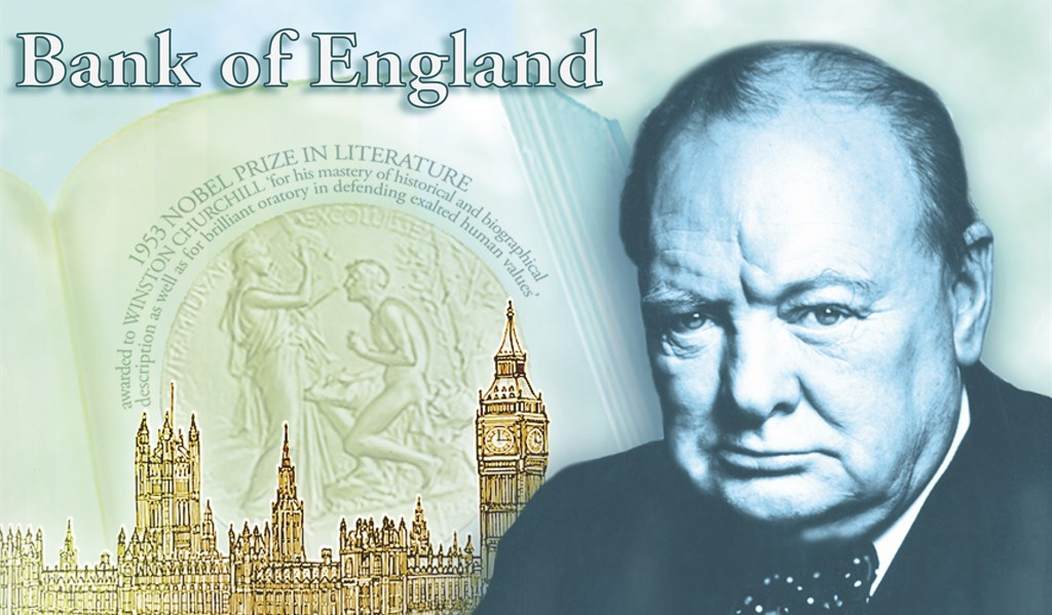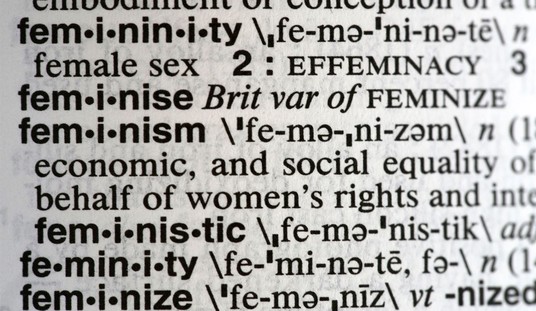Shakespeare wrote that some men are born great, some achieve greatness and others have greatness thrust upon them. But what did he know?
A more modern idea seems to hold that no man is great. Shakespeare once split an infinitive, after all. And, like Beethoven, he never once got his picture on a bubble gum card. Other men who likewise seem beyond reproach are, apparently, also ripe to be torn down.
After football coach Jim Harbaugh recently cited Winston Churchill as an inspiration, reader Andrew T. Gamble of Nebraska dropped a line of complaint to Sports Illustrated magazine. “Given Churchill's reported hatred of Indians and role in the Bengal famine, I think Harbaugh should look for someone else to admire,” he sniffed.
Churchill, being a man of his time, didn’t think much of India’s independence, that’s true. When the measure was being debated in Parliament, he pointed out that the two leading political parties on the subcontinent, Congress and the Muslim League, had declined to provide help to Britain during the dark days of World War II. He didn’t think either of these parties fairly represented their constituents.
“The only great volunteer army in the world that fought on either side in that struggle was formed in India,” Churchill pointed out. “More than three and a half million men came forward to support the King-Emperor and the cause of Britain; they came forward not by conscription or compulsion, but out of their loyalty to Britain and to all that Britain stood for in their lives.” Far from hatred, Churchill’s words indicate an admiration for ordinary Indians, who had volunteered in great numbers to fight and die alongside Englishmen.
As for the famine Gamble cited, it was indeed a humanitarian disaster. And was probably preventable. But when it happened, in 1943, Churchill was preoccupied with protecting the British Isles and fighting Germany. One can argue he should have done more to help prevent famine in Asia. But weighed against his far greater achievements in rolling back the evils of Nazism, Churchill’s inaction seems a relatively minor sin.
Recommended
History has been driven by many other great men. Washington and Lincoln in our own country, of course, and Churchill, Wellington, and others overseas. But despite our successes, we’re all flawed, and it’s easier to focus on those flaws than to highlight the vast achievements. That’s a problem inherent in small “d” democracy.
Thus Thomas Jefferson is dismissed as a man who allegedly fathered children with a slave, (although some experts are doubtful about that) rather than celebrated as the man who wrote the Declaration of Independence. In reality, of course, the eventual emancipation of slaves relied heavily on Jefferson’s work.
So too George Washington.
Americans once understood him to be the indispensable man, without whom independence would have been impossible. George III called him “the greatest man in the world.” His birthday was a national holiday. Yet even Washington, the face on the one dollar bill, is being downgraded.
He too owned slaves, you see. So that would outweigh any good he might have done.
It’s easy to play this game. Ronald Reagan was divorced. Martin Luther King cheated on his wife. So did John F. Kennedy. And Alexander Hamilton. Come to think of it, there has never been a perfect person. And there will never be.
That doesn’t mean there aren’t, and won’t continue to be, “great” people. Not people who think they’re great -- they are a dime a dozen. “I think that I’m a better speechwriter than my speechwriters,”
Doing what you’re supposed to do: Providing for your family, doing an honest day’s work for an honest day’s pay, being an active part of your community: these are all things we should all be striving for every day, not defining as “great actions.”
But let’s also recognize that some people, simply, are great. We can’t lift ourselves up by tearing them down. Instead, we should strive to emulate them, rather than simply waiting to have greatness thrust upon us.

























Join the conversation as a VIP Member